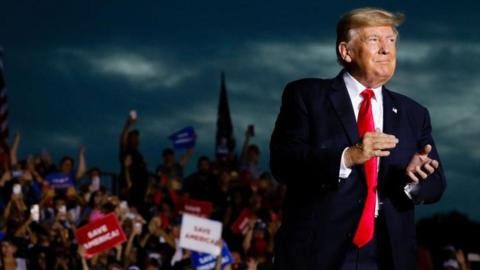
Trump
Trump Gets (Some) Immunity: Here’s What That Means For His Criminal Cases
Former President Donald Trump enjoys some immunity from criminal prosecution for acts he took while president, the Supreme Court ruled Monday, a momentous ruling that’s likely to affect the criminal cases against the ex-president and delay his federal election case from going to trial—but won’t get rid of his criminal charges entirely.
KEY FACTS
The Supreme Court ruled Trump and other presidents have “absolute immunity” from prosecution for their “core constitutional powers”—like appointing officials—and are presumed to be immune from punishment for any “official acts” while in office, but can still be charged for acts that weren’t part of their official duties.
Trump’s case has been on pause while the immunity dispute plays out, and the court’s ruling means the lower court will have to decide whether Trump is or isn’t immune from prosecution for various acts outlined in his indictment—and the case can’t go to trial until that’s resolved.
Trump’s alleged scheme to overturn the election had four different components, prosecutors have alleged: pressuring state officials and legislators to change the election results; a “fake elector” scheme in which state officials submitted false slates of electors to Congress; using the Justice Department to push his election fraud claims and pressuring then-Vice President Mike Pence not to certify the election results.
Trump’s activity with the DOJ was part of his constitutional powers and he’s immune from being charged based on it, the Supreme Court ruled, but U.S. District Judge Tanya Chutkan, who’s overseeing the trial, will have to decide whether those other acts are immune from prosecution or not.
Trump’s conversations with Pence are “at least presumptively immune from prosecution,” but Chutkan will still have to decide whether he should still face charges under the circumstances, the Supreme Court said.
More unclear are Trump’s interactions with state officials and public comments he made ahead of the Jan. 6 riot, as the Supreme Court said the lower court will have to still consider whether those were official acts or if they were unofficial—for example, if Trump were speaking as a candidate at the time rather than as the president.
Source: Forbes
